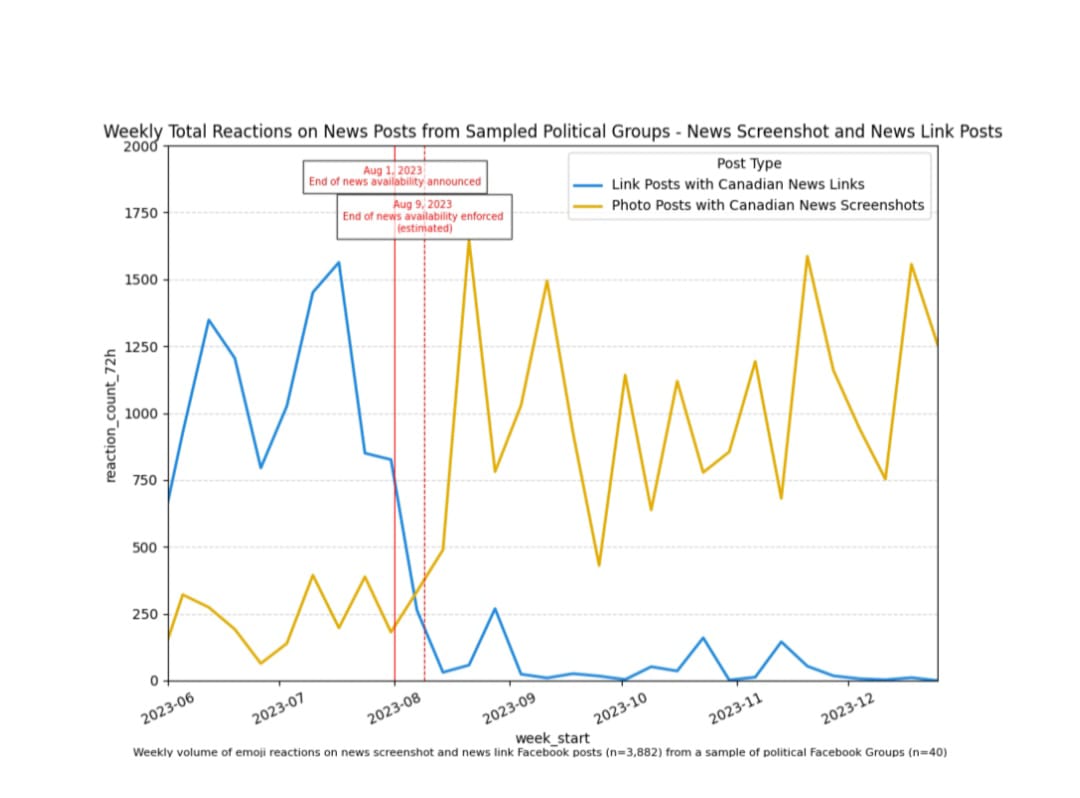
Facebook news Ban In canada Led To Surge In Partisan Memes, Studies Show
This shift in content consumption on facebook comes after Meta decided to block news links on its platform rather than pay media companies for their content.

Facebook's decision to block news content on its platform in canada has led to a significant increase in engagement with partisan memes and non-verified content, according to recent studies, reported Reuters. This change has raised concerns about the potential erosion of political discourse, especially as both canada and australia approach election years in 2025.
Jeff Ballingall, a notable right-wing meme producer and founder of the "Canada Proud" facebook page, reported a noticeable boost in traffic and engagement following the ban. Ballingall, whose page boasts around 540,000 followers, publishes up to ten posts daily. "Our numbers are growing and we're reaching more and more people every day," he stated. He also predicted an increasing trend towards niche and tribal media landscapes.
Shift In Content Consumption
This shift in content consumption on facebook comes after Meta, the parent company of facebook, decided to block news links on its platform rather than comply with Canadian legislation requiring tech giants to pay media companies for their content. Similar laws are under consideration in other regions, including california and the UK, while indonesia has already enacted such a law this year.
Research from McGill University's Centre for media, Technology, and Democracy highlighted a troubling trend where memes are replacing news discussions within political groups on Facebook. "The signals of reliability that were there are gone," commented Taylor Owen, founding director of the Centre. His study pointed out that the ambient presence of journalism and factual information has markedly diminished, leaving a void filled by often unverified and opinionated content.
Another study conducted by the media Ecosystem Observatory noted that where Canadian facebook users previously engaged with news content to the tune of 5 to 8 million views daily, such interactions have now shifted to image-based posts and partisan commentary. The research analyzed around 40,000 posts from 1,000 news publishers and 600 political groups, highlighting a tripling in reactions to memes and similar content.
Continued Access To 'Authoritative Information'
Meta has responded to these findings by reaffirming that people continue to use facebook and instagram despite the absence of news, asserting that Canadians can still access "authoritative information from a range of sources" on its platforms. A Meta spokesperson also emphasized their commitment to curbing misinformation through their fact-checking processes, reported Reuters.

Meanwhile, the Canadian government has criticized Meta's decision, with Canadian heritage minister Pascale St-Onge calling it "an unfortunate and reckless choice." This sentiment was echoed by Australian Assistant Treasurer stephen Jones, who emphasized the importance of access to trusted, quality content. "It is in Meta's interest to support this content on their platforms," Jones remarked, indicating ongoing discussions with Meta regarding future media licensing arrangements in Australia.
The removal of credible news sources and the rise in unreliable content consumption pose significant challenges as misinformation can spread rapidly during critical times such as emergencies and elections. According to NewsGuard, a fact-checking company, the engagement with unreliable sources jumped significantly following the news ban in Canada.
As the wallet PLATFORM' target='_blank' title='digital-Latest Updates, Photos, Videos are a click away, CLICK NOW'>digital landscape continues to evolve, the implications of such policy decisions by tech giants like Meta will likely have lasting impacts on the public's access to quality information and the overall health of democratic discourse.




 click and follow Indiaherald WhatsApp channel
click and follow Indiaherald WhatsApp channel